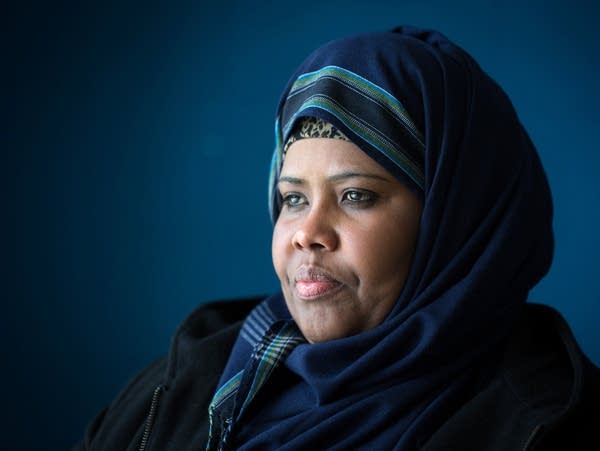For mothers of terrorism suspects, nothing but sorrow

Ayan Farah, the mother of two young men charged with trying to join the terror group ISIS, photographed Tuesday, April 21, 2015, at the Brian Coyle Center in Minneapolis.
Jennifer Simonson | MPR News
Go Deeper.
Create an account or log in to save stories.
Like this?
Thanks for liking this story! We have added it to a list of your favorite stories.


